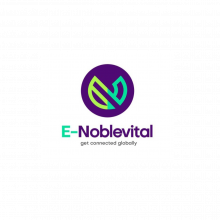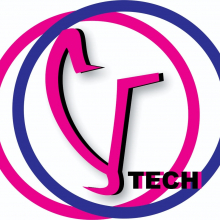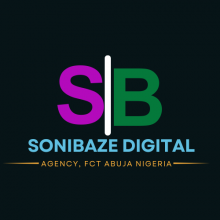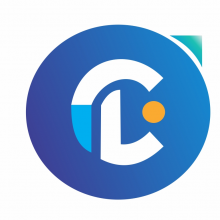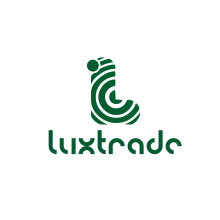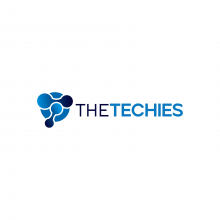
There are 41 Companies in Nigeria
that provide Artificial Intelligence Services!
Nigeria’s ICT sector contributed 19.78% to the country’s GDP in 2024. The telecommunications segment accounts for the vast majority of this, at around $7.6 billion. Other important contributors are broadcasting, data center services, cloud, IT, and BPO. Nigeria’s combination of relatively stable governance, strategic location, and young and innovative population has made it an attractive destination for multinational companies.
Discover Top IT Companies in Nigeria specialized in Artificial Intelligence including Machine Learning, Natural Language Processing, Cognitive Computing, Chatbots, Robotics and more.
Artificial Intelligence (AI) has emerged as a transformative technology, revolutionizing industries and unlocking new possibilities. It includes a range of services that leverage advanced algorithms and machine-learning techniques to enable machines to simulate human intelligence. These services include natural language processing, AR/VR development, data analysis, and virtual assistants, to name a few. AI is often intertwined with other similar services, such as data science, big data analytics, and sales automation, collectively forming a powerful ecosystem of intelligent solutions.
Handpicked companies • No obligation to hire • 100% risk-free
Featured Companies in Nigeria
This month, the following Artificial Intelligence companies managed to provide an outstanding service and support. It's worth taking a look.
Xpertech Solutions is one of the leading ICT and renewable energy conglomerate providing professional ICT and renewable energy services.
Fire Bee Techno Services is an ISO-Certified Blockchain and AI Development Company In india and across the world with 13+ years of experience.
An Innovative IT service provider specialized in Software Development, Blockchain Development, Product Design, Artificial Intelligence, and Training.
Explore Top Artificial Intelligence Companies in Nigeria
Mobirevo is a Leading custom software development agency focused on web, mobile app development & saas application development.
We use technology to create undeniably brilliant work for companies with taste.
we deliver innovative tech solutions that drive online growth for businesses across Africa, Europe, Asia, Oceania, and America.
Vsasf Nig Ltd (Vsasf Tech) is a computer software and IT service provider company. We offer ICT Courses to individuals and organizations in Nigeria.
We are a digital marketing agency in FCT Abuja, Nigeria, helping brands and businesses grow, we provide trainings and certifiactaions on Tech skills.
Tuplea ICT Concepts, a leading digital solutions agency in Ibadan, offers friendly ICT training online and onsite in web, software, design, and more.
IDMDevelopers is a full-service tech and AI agency based in Akure, Ondo State, Nigeria. They help brands grow with smart technologies.
We provide exceptional IT and support services that enable businesses to achieve their goals, improve efficiency, and stay ahead of the competition.
Collaborate | Innovate | Create
We are tech academy based opposite Abe-Adejam, Itakogun in ilesa, osun state , Nigeria
Rehub Developers builds scalable software, APIs, automation, and AI tools for startups, SMEs, and enterprises, your satisfaction is our priority.
Skillsquared INC is a premier digital development company, specializing in website & mobile app development, CRM solutions, and digital marketing.
We deliver innovative technology solutions that empower organizations and businesses around the world to transform, scale and achieve better outcomes.
A modern Tech solutions company focused on helping startups, businesses, build powerful websites and web apps. Expertise in React.js based development
a tech company revolutionizing the financial system in Nigeria with innovative solutions like the LuxTrade app for crypto and foreign exchange trading
We are a Website and App development company, and very passionate and dedicated to our work. With 7years+ experience as a professional designers
We specialize in advanced web solutions including web hosting, web development, and software development. We do provide SEO Visit us for more...
Gugu Robotics creates innovative AI-driven Robotic Solutions for Industries, Planetary Exploration, and Future Technologies.
turning ideas into tech solutions
TheTechies Limited is a one-stop shop technology solutions provider, empowering businesses in the digital age.
Maxuratech is a digital service solution provider that empower individuals' and businesses' with the boost they need to succeed
- 1
- 2
Filter Artificial Intelligence Companies in Nigeria by Cities
Find the right tech company near you or from a specific city. Some of the best companies might be located in smaller cities.
Find more Artificial Intelligence companies around the world
TechBehemoths is the world's most advanced and user-friendly platform to match IT Companies with real clients without hustle.
The ICT Industry in Nigeria : 2025 Report
Nigeria’s ICT sector contributed 19.78% to the country’s GDP in 2024. The telecommunications segment accounts for the vast majority of this, at around $7.6 billion. Other important contributors are broadcasting, data center services, cloud, IT, and BPO.
Nigeria’s combination of relatively stable governance, strategic location, and young and innovative population has made it an attractive destination for multinational companies. Several notable firms, such as Oracle, IBM, Microsoft, Cisco, HP, and SAP, have offices in Nairobi, and some have based their entire African operations from these offices.
Why You Should Work With Nigerian IT Companies
Digital service providers in the cloud and BPO markets are primarily involved in the provision, rather than the development, of services, whereas Nigerian firms are more prevalent in the fintech and e-commerce markets. The physical technology required for the delivery of digital services is typically imported, and it is not clear that Nigeria could produce these products more efficiently.
A key strength in the digital services market is the acceptance of mobile services. Any consumer solution entering the market would have to be mobile-compatible. Mobile healthcare services are expected to grow particularly rapidly as the sophistication of these offerings increases.
In addition, the CEO of Toniceli considers that one of the competitive advantages Nigerian IT companies have compared to those established in neighboring countries is the challenging conditions. Here in Nigeria, we're used to working in challenging and stressful environments. This gives us grit, especially when faced with challenging projects. It's just a part of our nature to face challenges headlong and not to back down.
What to Pay Attention to When Working With Nigerian IT Companies and Web Agencies
On the consumer side, it is vital that any proposed digital service offering be mobile-compatible due to the prevalence of mobile usage in Nigeria. Furthermore, smartphone penetration in the region is steadily increasing, thus increasing the sophistication of viable digital service offerings.
Given the acceptance of fintech by the Nigerian population, a possible route to entry in the consumer market is to acquire one of the many smaller fintech firms in the industry. This would resolve some of the primary barriers to entry, most specifically bureaucratic red tape and a lack of local knowledge.
On the corporate side, the most effective route to entry is likely through partnerships with smaller local resellers. This model is already popular in the Nigerian market. A key differentiating feature here will be how well the service adapts to the Nigerian market.
How Reliable Are Nigerian-based IT Companies?
Considered to be one of the biggest African IT hubs, Nigerian web agencies and IT companies compete only with Ethiopian ones in terms of reliability. As many foreign companies have already invested and thus developed the local IT infrastructure and industry overall, Nigerian IT companies find it easier than other neighboring countries to enter the global market and provide their services at accessible prices.
How Does the Nigerian IT Industry Relate to the Neighboring Countries?
Nigeria is actively trying to establish itself as a key ICT hub in the East African region. The country appears to be making good progress in this regard, helped by having a strong connectivity infrastructure and a young, innovative population. Despite this, the country currently faces considerable political uncertainty, and issues surrounding the transparency of tenders remain a major barrier to growth.
Although Nigeria’s score in the Global Innovation Index 2024 is not high in absolute terms, it ranks 113th in the world. This supports the conjecture that businesses, government, and consumers will be receptive to new technologies, as ICT has already had a substantial impact on the Nigerian economy.
The Business Environment in Nigeria
The CEO of Toniceli - a leading Nigerian IT company, Oluwayomi Olabanjo, states that the Nigerian business environment is growing rapidly. Most business environments are still very much clustered in the city of Lagos, but over the years, there's been an expansion in economic clusters in other cities. There had been challenges in infrastructure, policies, power, and access to professional training and education. However, things have been getting better over time, especially with the coalition of private and public enterprises addressing these challenges headlong. I would say the biggest factor we've had working for us in the Nigerian market is the availability of youthful talent and the increasing flow of foreign and local capital into the market.
What Makes Nigeria Attractive for International IT Companies?
Oluwayomi Olabanjo mentions on this topic that what makes it attractive is the abundant supply of youthful talent. However, unstable government policies, infrastructure, and power shortages are challenges, making it unattractive for international IT companies.
Yet, the Nigerian Communications Commission had been doing quite a lot with the startup bill and also with the establishment of public-private incubator programs within the country. I really do believe they should be given credit for this.
Lagos, Ibadan - Best Cities for Doing IT business in Nigeria
Lagos, because it has always been the economic hub of the country, hence the IT industry has found it quite easier to experience growth in that space.
Ibadan due to the fact that it is a fast-growing economic hub and also, and there's less capital expense in setting up and running a company here. - mentioned Oluwayomi Olabanjo.
What is Artificial Intelligence and what are its benefits for your projects?
Artificial Intelligence (AI) has emerged as a transformative technology, revolutionizing industries and unlocking new possibilities. It includes a range of services that leverage advanced algorithms and machine-learning techniques to enable machines to simulate human intelligence. These services include natural language processing, AR/VR development, data analysis, and virtual assistants, to name a few. AI is often intertwined with other similar services, such as data science, big data analytics, and sales automation, collectively forming a powerful ecosystem of intelligent solutions.
According to Forbes, 64% of business owners believe AI has the potential to improve customer relationships, indicating a positive outlook on the role of AI in enhancing client interactions
By implementing AI services in their working processes, companies can get a series of benefits, among which are:
- Enhanced efficiency in repetitive tasks
- Improved analytics.
- Enhanced Customer Experiences
- Process optimization
When selecting an AI service provider for a project, it is recommended to consider a series of criteria that would bring you closer to the best-suitable companies you want to work with. Some of the most important are:
-
Expertise and Experience: Look for companies with a proven track record in developing AI solutions relevant to your industry.
-
Location: If this is important to your business or project requirements, choose a company that suits your geographical needs, and avoid cultural, and linguistic barriers
-
Team size: depending on how urgent you need the project to be delivered, by selecting a company with more resources - you ensure a faster execution
-
Hourly rates: even the best matching companies may have an hourly rate that could surpass your budget. To make sure you are on the same financial wave with your potential AI development partners, choose the hourly rate that gets closer to your project.
TechBehemoths, a trusted platform in the tech industry, can assist in selecting the best AI companies for your projects. With a comprehensive directory of AI service providers that includes more than 1200 specialized companies across 50+ countries, TechBehemoths offers unbiased reviews, ratings, and detailed profiles, helping you make informed decisions. The platform features a robust search functionality, allowing you to filter companies based on industry expertise, location, and other project requirements.





